The idea that HGH and weight loss could go hand-in-hand has gained a lot of attention in recent years. Human Growth Hormone (HGH) is best known for its role in growth and tissue repair, but it also plays a role in fat burning and managing weight. Some studies suggest that HGH can help the body burn fat and build muscle. This makes it an exciting topic for anyone interested in losing weight.
When HGH levels are high, the body can burn fat more effectively. This can help target stubborn fat areas that are difficult to reduce with diet and exercise alone. However, it’s important to remember that the research is still ongoing, and HGH has not been approved for weight loss outside of controlled studies.
The connection between HGH and weight loss lies in its ability to enhance fat breakdown and metabolism. By boosting lipolysis and encouraging muscle growth, HGH creates an optimal environment for fat burning, making weight loss more achievable.
Explore HGH Fragment 176-191 from Direct Peptides , a peptide that targets fat cells and accelerates fat loss by enhancing lipolysis and metabolism.
HGH and weight loss are linked because HGH helps break down fat and increase metabolism. Research suggests that HGH can boost lipolysis, which is the process of breaking down fat cells. This helps the body use fat as energy, leading to potential weight loss.
Additionally, HGH encourages muscle growth. Muscle burns more calories than fat, even when the body is at rest. As HGH helps build muscle, the body’s metabolism speeds up, which makes it easier to burn fat over time. This process can help speed up fat loss and muscle gain, both of which are important for weight management.
While the research is promising, it’s important to know that HGH’s effects on fat breakdown and metabolism are still being studied. For now, it should be seen as a potential tool, not a miracle cure.
While the potential benefits of HGH for fat breakdown and metabolism are intriguing, it’s essential to consider other factors that could influence weight loss.
Weight gain is a multifaceted issue, with various contributing factors such as genetics, lifestyle, and hormonal changes. Understanding these elements will provide a broader perspective on how HGH might fit into the overall picture of effective weight management.
Explore Peptide Supplies at Direct Peptides for all your reconstitution requirements.
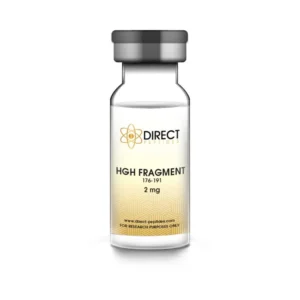 Weight gain isn’t always about overeating. It’s a mix of genetic, hormonal, and lifestyle factors that can all contribute. Many people may struggle with weight gain because of things beyond their control, like hormones or genetics.
Weight gain isn’t always about overeating. It’s a mix of genetic, hormonal, and lifestyle factors that can all contribute. Many people may struggle with weight gain because of things beyond their control, like hormones or genetics.
Hereditary Factors: Some people are genetically more likely to store fat. Studies show that people with a family history of obesity might have lower levels of growth hormones, making it harder to burn fat. In this case, understanding how to boost metabolism could be key.
Processed Foods and Obesity: A diet full of processed foods, high in sugar and unhealthy fats, can slow down metabolism and make it harder to lose weight. Poor eating habits can lead to insulin resistance and excess fat storage, which makes it even harder to lose weight.
Hormonal Changes: For both women and men, age-related hormonal changes can make it more difficult to maintain a healthy weight. Women, especially during menopause, experience lower levels of growth hormones, which can contribute to weight gain. Men, as they age, also see a drop in testosterone and HGH levels, which can lead to fat gain.
While understanding the factors contributing to weight gain is essential, it’s equally important to explore how HGH and weight loss are connected.
HGH may offer a solution by enhancing lipolysis, the process of breaking down fat. This could be particularly beneficial for those struggling with the genetic, dietary, and hormonal challenges that hinder weight loss.
 One of the key reasons HGH and weight loss are linked is HGH’s ability to enhance lipolysis. Lipolysis is the process where the body breaks down fat stores into usable energy. Research shows that HGH can help speed up this process, making it easier for the body to burn fat.
One of the key reasons HGH and weight loss are linked is HGH’s ability to enhance lipolysis. Lipolysis is the process where the body breaks down fat stores into usable energy. Research shows that HGH can help speed up this process, making it easier for the body to burn fat.
When the body breaks down fat more efficiently, it can lead to faster weight loss. HGH’s ability to accelerate fat burning is especially helpful for individuals struggling with stubborn fat areas, such as the stomach or thighs.
However, while the initial findings are promising, more research is needed to confirm whether HGH can truly enhance lipolysis in the long run.
HGH and weight loss are closely linked, with HGH’s ability to promote fat breakdown showing promise. However, it’s not the only compound being researched. Other peptides are also being studied, each offering unique mechanisms to enhance fat burning and metabolism.
While HGH and weight loss are closely linked, other peptides are also being researched for their potential to aid in fat loss and metabolism. These peptides work in different ways, but all show promise in helping the body burn fat more efficiently.
Here’s a closer look at some of the most interesting peptides being explored for weight loss:
 AOD-9604 is a fragment of HGH that specifically targets fat loss. Unlike full HGH, which affects many processes in the body, AOD-9604 focuses only on breaking down fat. It stimulates lipolysis, helping the body use fat for energy. This makes AOD-9604 a very targeted fat-burning peptide.
AOD-9604 is a fragment of HGH that specifically targets fat loss. Unlike full HGH, which affects many processes in the body, AOD-9604 focuses only on breaking down fat. It stimulates lipolysis, helping the body use fat for energy. This makes AOD-9604 a very targeted fat-burning peptide.
Studies in animals have shown that AOD-9604 may reduce fat, especially in stubborn areas. However, it’s still being tested in humans, and more research is needed to fully understand its effectiveness and safety.
Discover AOD-9604 from Direct Peptides , a peptide fragment derived from HGH that targets fat breakdown and promotes fat loss.
FTPP Adipotide works by targeting fat cells directly. It encourages a process called adipocyte apoptosis, where fat cells are destroyed and removed by the body. This helps reduce overall fat mass.
Animal studies have shown that FTPP Adipotide can significantly decrease fat stores, particularly in hard-to-lose areas like the belly. While these results are promising, human trials are still ongoing, and more research is needed before it can be considered a safe weight loss treatment.
Explore FTPP Adipotide from Direct Peptides , a peptide that targets fat cells directly, helping to reduce body fat by inducing adipocyte apoptosis.
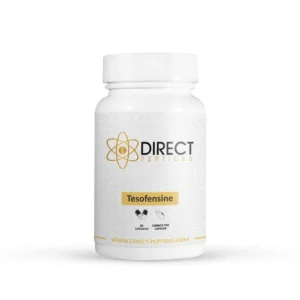 Tesofensine is a peptide that affects appetite by influencing neurotransmitters like serotonin, dopamine, and norepinephrine. These neurotransmitters help control hunger. By increasing the levels of these neurotransmitters, Tesofensine can help reduce appetite, leading to a decrease in calorie intake.
Tesofensine is a peptide that affects appetite by influencing neurotransmitters like serotonin, dopamine, and norepinephrine. These neurotransmitters help control hunger. By increasing the levels of these neurotransmitters, Tesofensine can help reduce appetite, leading to a decrease in calorie intake.
Clinical trials have shown that Tesofensine can lead to significant weight loss. While it’s still in the experimental phase, it holds promise as an appetite-suppressing tool in the future of weight loss.
Learn about Tesofensine from Direct Peptides , a peptide that reduces appetite and promotes fat loss by influencing key hunger-regulating neurotransmitters.
Tesamorelin is a synthetic peptide that stimulates the release of growth hormone. It has shown potential for reducing visceral fat—the fat around the abdomen that is often linked to serious health problems like heart disease and diabetes. Tesamorelin helps break down fat and build lean muscle, making it a promising tool in weight management.
Though it has been effective in some specific populations, such as those with HIV-associated lipodystrophy, more research is needed to determine its use in the general population.
Explore Tesamorelin from Direct Peptides , a synthetic peptide that stimulates growth hormone production and helps reduce abdominal fat while improving body composition.
While HGH is at the forefront, these other peptides are also showing promise. So, what does all this mean for the future of weight loss treatments?
Research into HGH and weight loss shows a lot of potential, but we still need more studies to fully understand how these peptides work.
Peptides like AOD-9604, FTPP Adipotide, Tesofensine, and Tesamorelin have shown promise in improving fat breakdown, boosting metabolism, and supporting muscle growth. However, they remain in the experimental stage and are used only in controlled research settings.
While these peptides could provide new options for those struggling with obesity and weight loss, it’s important to be cautious. More research is needed to confirm their long-term safety and effectiveness. In the meantime, the most reliable methods for losing weight are a balanced diet, regular exercise, and healthy lifestyle choices.
As science continues to evolve, HGH and weight loss might become part of a new wave of treatments for those looking for a more effective approach to managing their weight.
[1] Kim KR, Nam SY, Song YD, Lim SK, Lee HC, Huh KB. Low-dose growth hormone treatment with diet restriction accelerates body fat loss, exerts anabolic effect and improves growth hormone secretory dysfunction in obese adults. Horm Res. 1999;51(2):78-84.
[2] Lizcano F, Guzmán G. Estrogen Deficiency and the Origin of Obesity during Menopause. Biomed Res Int. 2014;2014:757461.
[3] Rebuffé-Scrive M, Mårin P, Björntorp P. Effect of testosterone on abdominal adipose tissue in men. Int J Obes. 1991 Nov;15(11):791-5.
[4] Carrel AL, Allen DB. Effects of growth hormone on adipose tissue. J Pediatr Endocrinol Metab. 2000 Sep;13 Suppl 2:1003-9.
[5] Dixit M, Poudel SB, Yakar S. Effects of GH/IGF axis on bone and cartilage. Mol Cell Endocrinol. 2021 Jan 1;519:111052. doi: 10.1016/j.mce.2020.111052. Epub 2020 Oct 14.
[6] Teichman SL, Neale A, Lawrence B, Gagnon C, Castaigne JP, Frohman LA. Prolonged stimulation of growth hormone (GH) and insulin-like growth factor I secretion by CJC-1295, a long-acting analog of GH-releasing hormone, in healthy adults. J Clin Endocrinol Metab. 2006 Mar;91(3):799-805.
Shop ALL Peptide Vials from Direct Peptides today, your trusted supplier of premium clinical-grade peptides online.
As people age, their HGH levels naturally drop, which causes their metabolism to slow down, their muscle mass to decrease, and their fat storage to increase. HGH production can also be suppressed by genetics, stress, sleep deprivation, hormonal changes, and high-sugar diets. In order to support natural HGH levels and weight control, lifestyle factors like diet, resistance training, and sleep quality should be addressed.
Research shows that HGH may help reduce stubborn fat by speeding up fat breakdown and improving energy use in the body. This can be especially helpful for tough areas like the abdomen that don’t always respond to diet and exercise. However, results can vary from person to person, and these effects are considered experimental rather than certain.
HGH helps regulate how the body uses energy by increasing the breakdown of fats and supporting muscle growth. Because muscle tissue burns more calories at rest than fat, higher HGH levels may indirectly increase metabolism. Early studies show improvements in fat utilization, but more research is needed to understand long-term effects and appropriate applications.
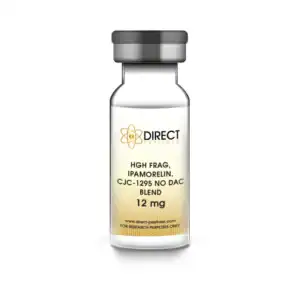
BULK BUY
HGH Frag 176-191 Ipamorelin CJC No DAC
£72.60 – £246.84Price range: £72.60 through £246.84 Select options This product has multiple variants. The options may be chosen on the product page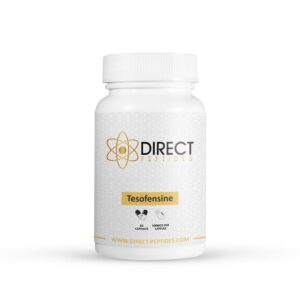
Tesofensine Capsules
£159.66 Select options This product has multiple variants. The options may be chosen on the product page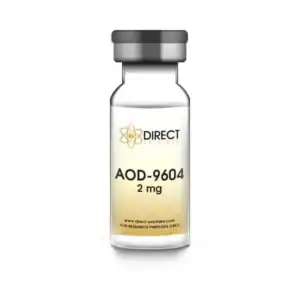
TWIN PACKS
TWIN PACKS
TWIN PACKS
AOD-9604 Peptide Vial
£18.33 – £218.79Price range: £18.33 through £218.79 Select options This product has multiple variants. The options may be chosen on the product page
FTPP (Adipotide) Nasal Spray
£28.17 – £51.33Price range: £28.17 through £51.33 Select options This product has multiple variants. The options may be chosen on the product pageALL CONTENT AND PRODUCT INFORMATION AVAILABLE ON THIS WEBSITE IS FOR EDUCATIONAL PURPOSES ONLY.
DISCLAIMER: These products are intended solely as a research chemical only. This classification allows for their use only for research development and laboratory studies. The information available on our Direct Peptides website: https://direct-peptides.com is provided for educational purposes only. These products are not for human or animal use or consumption in any manner. Handling of these products should be limited to suitably qualified professionals. They are not to be classified as a drug, food, cosmetic, or medicinal product and must not be mislabelled or used as such.